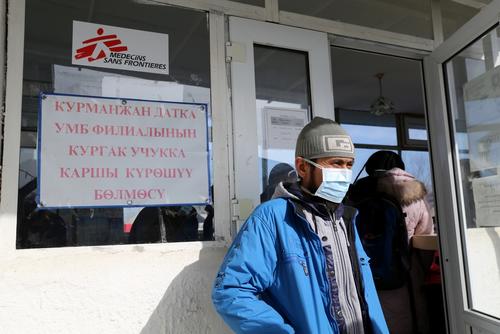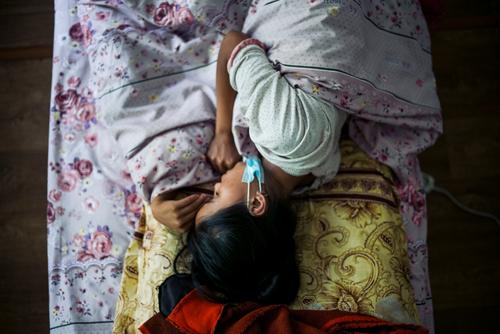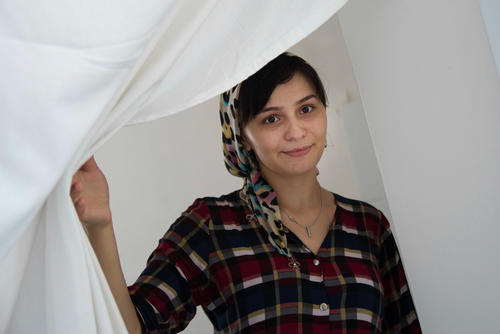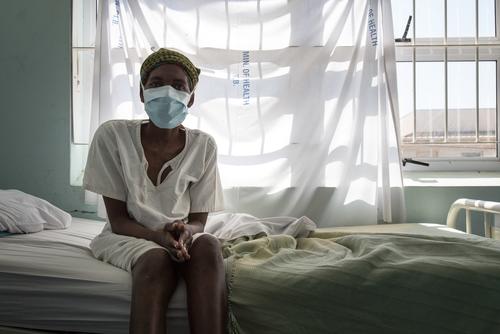As tuberculosis (TB) remains a public health concern in the Eastern European and Central Asian regions, a regional symposium to be held on 1 and 2 March in Bishkek will tackle recent new approaches to treatment and urge for scale-up of new drugs and diagnostic tools. Hosted by the Ministry of Health of Kyrgyzstan and Médecins Sans Frontières (MSF), the symposium will bring together around 160 participants from the region.
Entitled ‘Treating Patients, not Disease: A People-Centred Approach,’ the symposium will focus on the health needs and expectations of people affected with TB and their communities. Evidence around the effectiveness of newer, shorter drug regimens will be presented as a core part of the symposium.
“The Kyrgyz Republic has already accumulated experience in implementing new treatment regimens and new funding mechanisms for the national TB service as well as patient-oriented approaches in TB care,” says Dr Talantbek Batyrailev, Minister of Health of the Kyrgyz Republic. “As a result, the situation with TB is improving.”
Tuberculosis is one of the top 10 causes of death globally, according to the World Health Organization. The disease claimed the lives of 1.7 million people in 2016, including 250,000 children. The vast majority of these deaths occurred in low- and middle-income countries. Strains of TB resistant to the main TB drugs pose an even deadlier threat: only half of patients with multidrug-resistant TB are successfully treated.
“To make TB a disease of the past, we have a long way to go,” says Dr Nazgul Samieva, Medical Coordinator for MSF in Kyrgyzstan. “While more effective treatments are available, they are not being rolled out enough to reach those who need them most, or to stop transmission of the disease.”

New drugs available, but wider use urgently needed
Two new drugs which have been successfully shown to treat drug-resistant TB, – bedaquiline and delamanid - are being slowly rolled out in many countries in East Europe and Central Asia, including Kyrgyzstan.
However, a recent report issued by MSF and the Stop TB Partnership reveals concerning statistics about the region. While most of the countries surveyed* include bedaquiline and delamanid in their national protocols, this does not translate into a significant number of patients being treated. As of July 2017, only 2,441 people in the eight countries surveyed had been treated with bedaquiline, and only 333 people with delamanid, which represents less than three per cent of the people who could benefit from them.
“Several countries in the region are currently participating in clinical trials aiming at showing efficacy and safety of shorter treatment regimens including the new TB drugs. We are hoping that Kyrgyzstan will join the list of these countries as soon as spring 2018,” says Dr. Samieva.
“It is critical that all governments of countries affected by TB move forward on their approaches,” Dr. Samieva concludes. “Progress has been made and new diagnostic methods and treatments are available, yet they are still not reaching the people who need them most: the patients.
*Armenia, Belarus, Georgia, Kazakhstan, Kyrgyzstan, Russian Federation, Tajikistan and Ukraine
In Kyrgyzstan, MSF is working in Osh, in Kara Suu district, providing outpatient care for people with drug resistant TB. MSF also supports the Ministry of Health in the diagnosis and treatment of patients with the more severe form of the disease at Kara Suu Hospital. Another team supports the follow-up of patients receiving treatment at Osh TB Hospital.
Elsewhere in the country, MSF is providing primary healthcare support to the Ministry of Health, in Aidarken, Batken Oblast.
MSF first worked in Kyrgyzstan in 2005.






